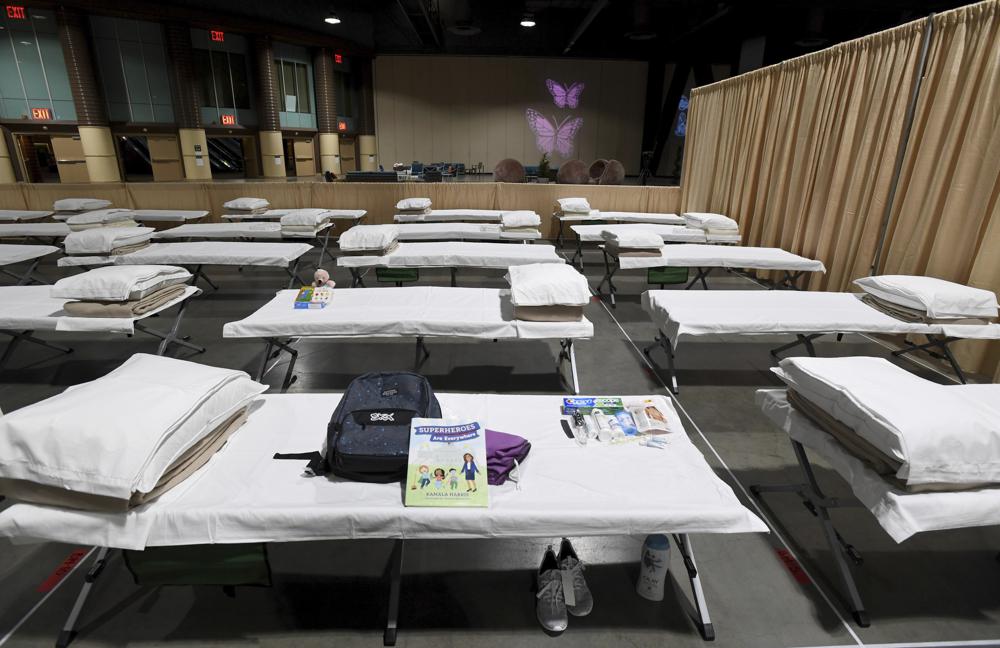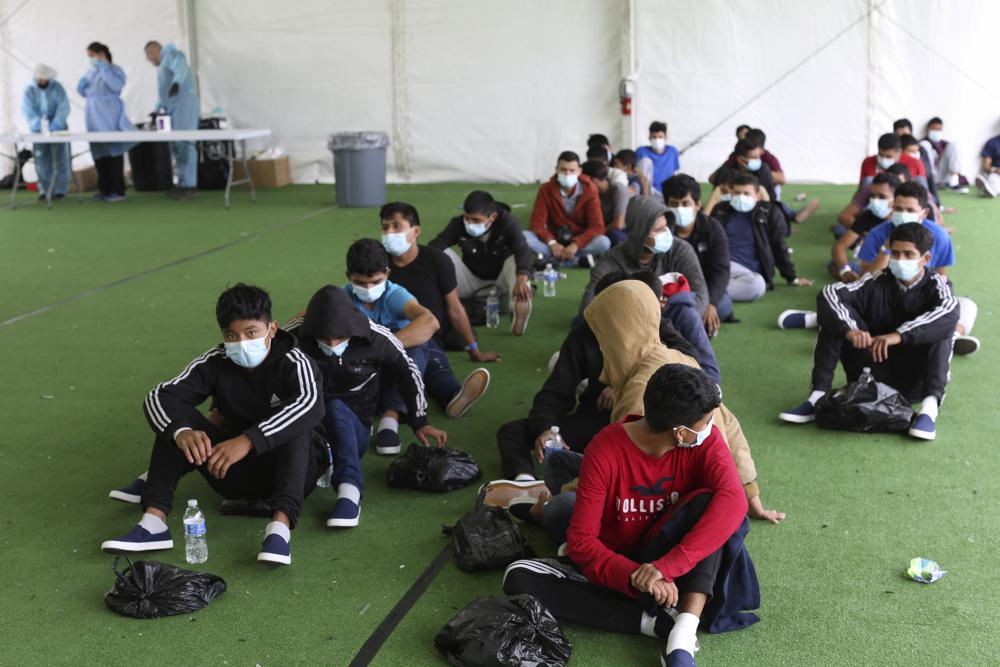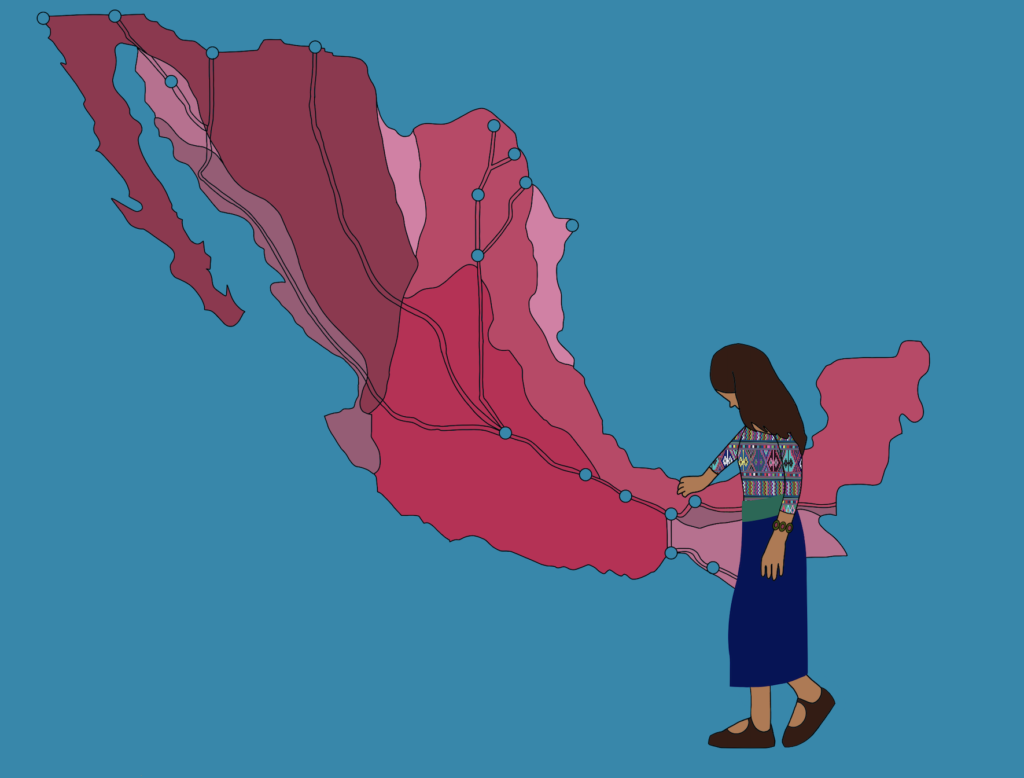We urge the Biden administration to cease separating im/migrant families through the misuse of public health policy Title 42 and to cease the myriad restrictions constraining individuals’ right to seek asylum, including the detention of children in all forms. In this statement and call to action, we draw on our expertise as anthropologists to historicize family separation and to argue for immediate action to defend the human rights of im/migrants and refugees.
By: Anthropologist Action Network for Immigrants and Refugees
Within the first three months of 2021, 33,000 unaccompanied children arrived at the United States – Mexico border. The U.S. Department of Health and Human Services (HHS) responded by opening large-scale facilities, ranging from 1000 to 4500 beds, to house them. Yet most of these children did not travel alone; they were rendered “unaccompanied” by Title 42, a Centers for Disease Control and Prevention (CDC) policy enacted by the Trump administration that instructs U.S. Customs and Border Patrol (CBP) to refuse entry to adults from a country where a communicable disease is present. Unlike adults, children from noncontiguous countries cannot be deported immediately.

Instead, minors are being detained in converted convention centers, stadiums, and military bases until they are reunited with family in the U.S., enter federal foster care, or are deported. These unlicensed influx and intake sites expose children and youth to severe physical and psychological trauma. Moreover, they reflect the broader criminalization of im/migrant populations in the United States, contributing to political frameworks that undermine the rights of children and families and leave them vulnerable to abuse and surveillance by state actors.
The Society for the Anthropology of North America (SANA) joins the Anthropologist Action Network for Immigrants and Refugees (AANIR) to urge the Biden administration to cease separating im/migrant families through the use of Title 42 and to ease the myriad restrictions constraining individuals’ right to seek asylum, including the detention of children.
Title 42 is not an aberration; rather, it builds upon earlier policies of both the Obama and Trump administrations that have restricted asylum, including the “Remain in Mexico” program and the illegal asylum metering system at the U.S. – Mexico border. Here, we draw on our expertise as anthropologists to historicize family separation and to argue for immediate action to defend the human rights of im/migrants and refugees. We specifically call for the end of administrative policies that render children unaccompanied and the abolition of the detention of migrant children in all forms.
Title 42 is merely one among myriad ways in which immigration policy is separating children from their families—be it raids, stalled family reunification, visa quotas, or deportation. States have long employed this practice as a social, economic, and political strategy. Examples include the forced separation of Native American children in so-called “Indian schools”; the use of children in chattel slavery and subsequent fracturing of enslaved families; and the ways that Nazi concentration camps, Japanese internment camps, and the Argentine military during the dirty war—all used child separation and/or the threat of separation as tools of intimidation and repression. Additionally we can point to the ongoing hyperpolicing and mass incarceration of African Americans that separates families and displaces Black youth into the foster system. These examples serve as a reminder that child-family separation has long been used as a technique of political statecraft.
Forced family separation has both immediate and long-term effects. Anthropological research in general, and Indigenous scholarship in particular, understands trauma not merely as an individual response to an event, but also as a rupture of the social fabric. The consequences of this rupture are at once individual, social, collective, and enduring, necessitating an approach to violence against children that accounts for its function as a form of social violence that is explicitly transmitted across generations. For example, we see the reverberations of chattel slavery in contemporary experiences of trauma and disparate health outcomes of African American women. We are just beginning to understand and rectify the consequences of the Trump-era zero-tolerance policies that forcibly separated 5500 children from their families. However, historical precedent indicates that the implications of this action will be extensive and long-lasting. Notably the Pomona Fairplex influx facility for unaccompanied children is the very site where Japanese Americans were interned during World War II. Without a sharp course correction, the Biden administration is in danger of repeating harmful policies that remove young people from their families and networks of care and augment the trauma they experience.

The most recent iteration of child-family separation instigated by Title 42 poses serious consequences for the young people currently housed in HHS facilities. Experts concur that even brief detention and separation from parents can cause psychological trauma and induce long-term mental health risks for children and youth. Medical anthropologists have identified how experiences of prolonged detention negatively impact migrants’ mental and physical health and further contribute to increased vulnerability to COVID-19. These impacts are particularly dire for children. Research underscores that care practices (or lack thereof) in large-scale institutions can cause severe harm: Children who have been detained describe constant surveillance, limited communication with family, lack of fresh air and green space, prohibition against physical touch, and disturbingly, overmedication. They are also victims of sexual assault, physical abuse, verbal abuse, and medical neglect. At the same time, children struggle to cope with the uncertainty of family reunification, procedural opacity, ongoing legal proceedings, and the possibility of deportation. Children’s case files, including mental health records, behavioral notes, and communications presumed to be confidential, can and have been used against children in immigration court.
Recognition of the inadequacy of institutional care for child development and wellbeing has precipitated a shift away from institutional-based care for non-migrant children. Indeed, the federal government has codified that children in the domestic child welfare system should be placed in the least restrictive setting appropriate to their needs, prioritizing family and small group care. Yet, federal facilities for migrant children continue to grow in size. Detention centers writ large have come under heavy scrutiny from academics, politicians, and journalists. Meanwhile, privately contracted facilities like the Homestead Temporary Influx Facility in Florida—previously run by Caliburn, a Department of Defense contractor — have also been shown to be potentially harmful for the physical and developmental health and wellbeing of children and youth. Despite the dangers they pose, these facilities operate on a profit motive and benefit from government contracts. The continued development of large-scale detention facilities, in spite of clear evidence of the dangers they pose, is emblematic of what researchers have termed the “immigration industrial complex” whereby public and private power converge to expand systems of detention and surveillance. Detention centers are generally placed out of view with difficult accessibility, making it difficult to ensure accountability and augmenting the need for a critical anthropological presence in and around facilities.
Despite constraints on the immediate deportation of children and youth from noncontiguous countries, hundreds of thousands of removal orders and voluntary departures effectuated on young people have increased deportations dramatically since 2013 and expanded the effects of coercive confinement and expulsion across time and space. Experiences of return may exacerbate vulnerabilities in countries of birth and have emotional, social, and material impacts. Not only may the often incomprehensible legal processes that lead to deportation be disorienting, but arrival is likewise distressing. Removal to unfamiliar deportation sites can generate anxiety that is compounded by the difficulties of mobility and out-of-placeness such as securing adequate places to stay, communicating with loved ones, and avoiding violent victimization securing adequate places to stay, being in contact with loved ones, and avoiding violent victimization. Moreover, for many people who are returned, physical and social distance from family in the United States is extended, amplifying the effects of separation over time, both within and outside of U.S. territory.

We call upon the Biden administration to rectify the situation at the United States’ southern border by implementing a three-part approach that is monitored by independent experts and follows best practices in each:
The Biden administration must acknowledge the historical, political, economic, and ecological factors forcing a new generation of young people to leave Central America, and the United States’ role in this history of displacement. Instead of policies that further militarize migration management across the Americas, the administration must address the multifaceted causes of migration in ways that center the voices, experiences, and challenges of displaced and vulnerable communities in Central America, Mexico, and the Us.
This statement was prepared in collaboration with the Anthropologist Action Network for Immigrants and Refugees and is endorsed by the Society for the Anthropology of North America, the Council on Anthropology and Education, and the Anthropology of Children and Youth Interest Group. An abbreviated version was issued by the American Anthropological Association.